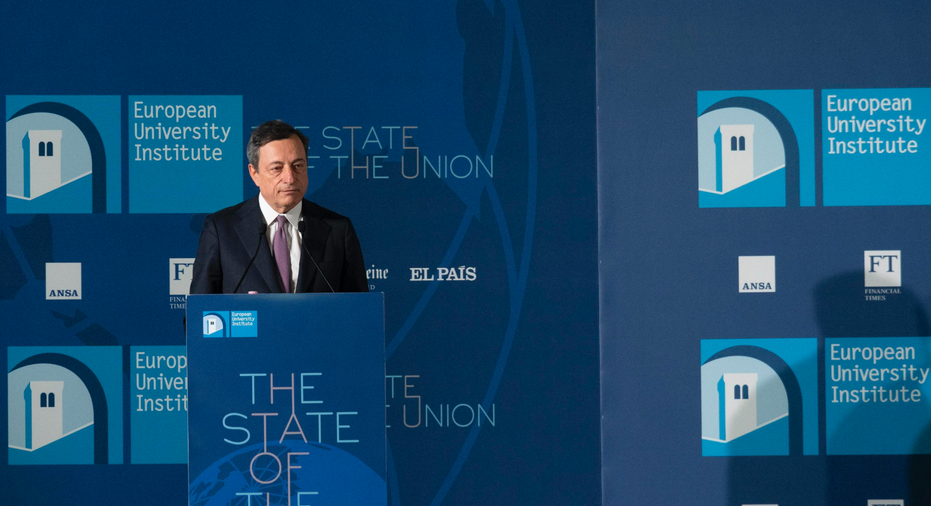European Central Bank chief: Reform to make euro resilient

FRANKFURT, Germany – The head of the European Central Bank is urging political leaders to repair gaps in the way the euro is set up to prevent another crisis — including by finding money to help governments hit by deep recessions.
Mario Draghi said Friday in a speech in Florence, Italy, that sharing some government funds could provide "an extra layer of stabilization" for countries facing economic and market turmoil that can't be calmed through national budget and economic policies.
He conceded, however, the idea would be complex to enact and faces political resistance. Draghi didn't specify what form the support might take, calling it a "fiscal instrument."
French President Emmanuel Macron has called for EU leaders to agree at a June 28-29 summit on changes to the euro's setup, to prevent a repeat of the 2010-2015 market turmoil that threatened to break up the 19-country eurozone. He faces skepticism from Germany's Chancellor Angela Merkel.
Proposals for strengthening the euro's structure include some sort of central fiscal pot as well as other financial assistance that could be triggered during a recession. Additional reforms include creating deposit insurance at the European Union level, which could help prevent bank runs from overwhelming an individual country's finances.
Draghi said policymakers need to "address the areas of our union that we all know are incomplete."
But politicians in Merkel's conservative party fear that such measures will put Germany, as the eurozone's biggest member, on the hook for financial folly in countries such as Italy and Greece.
The German position has been that deposit insurance can only take effect once risks such as bad loans have been purged from bank balance sheets through tough supervision. Draghi argues, however, that sharing risks through fiscal support and deposit insurance makes trouble less likely in the first place.
Expectations have dwindled that the June summit will yield far-reaching proposals such as a eurozone budget or a finance minister. But the leaders could still reach agreement on strengthening Europe's bank rescue fund by letting it tap extra money from the European Stability Mechanism, the bailout fund that has loaned to troubled countries during the crisis.
Bailing out banks was a key feature of the eurozone crisis, making efforts to prevent banking troubles an important part of strengthening the currency union. The crisis led to bailouts for Greece, Portugal, Ireland, Cyprus and, through its banks, Spain. The accompanying recessions and restrictions on government spending led to widespread misery through high unemployment and reductions in pensions and government salaries.



















